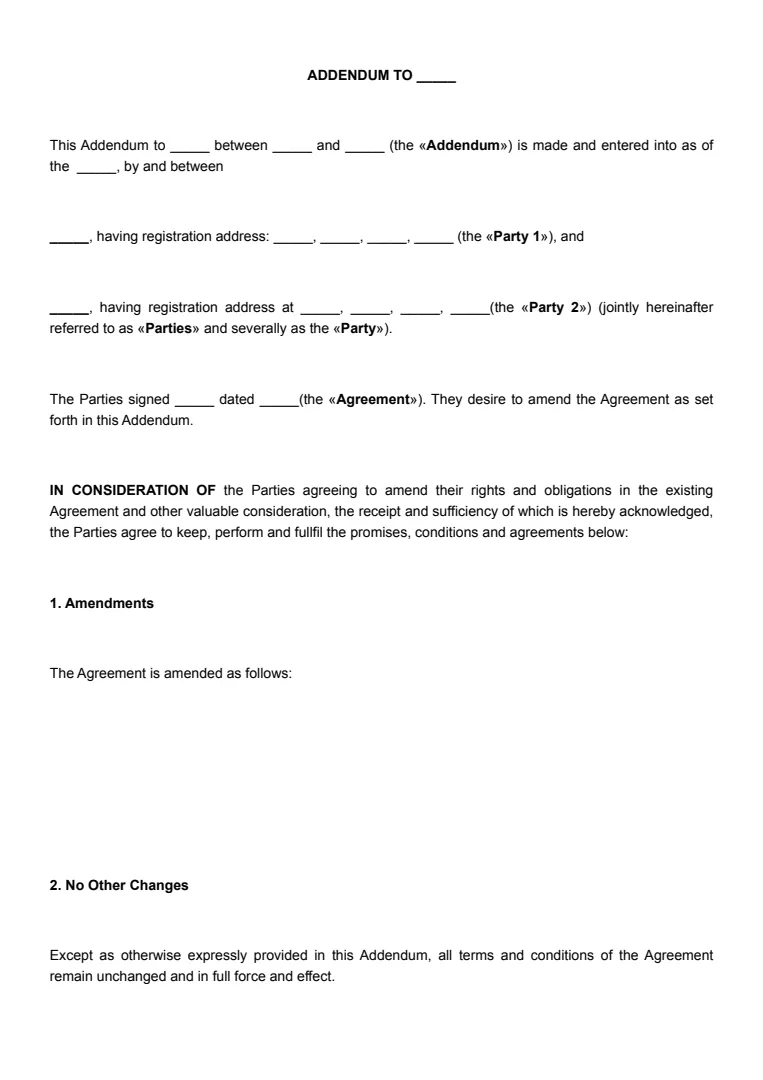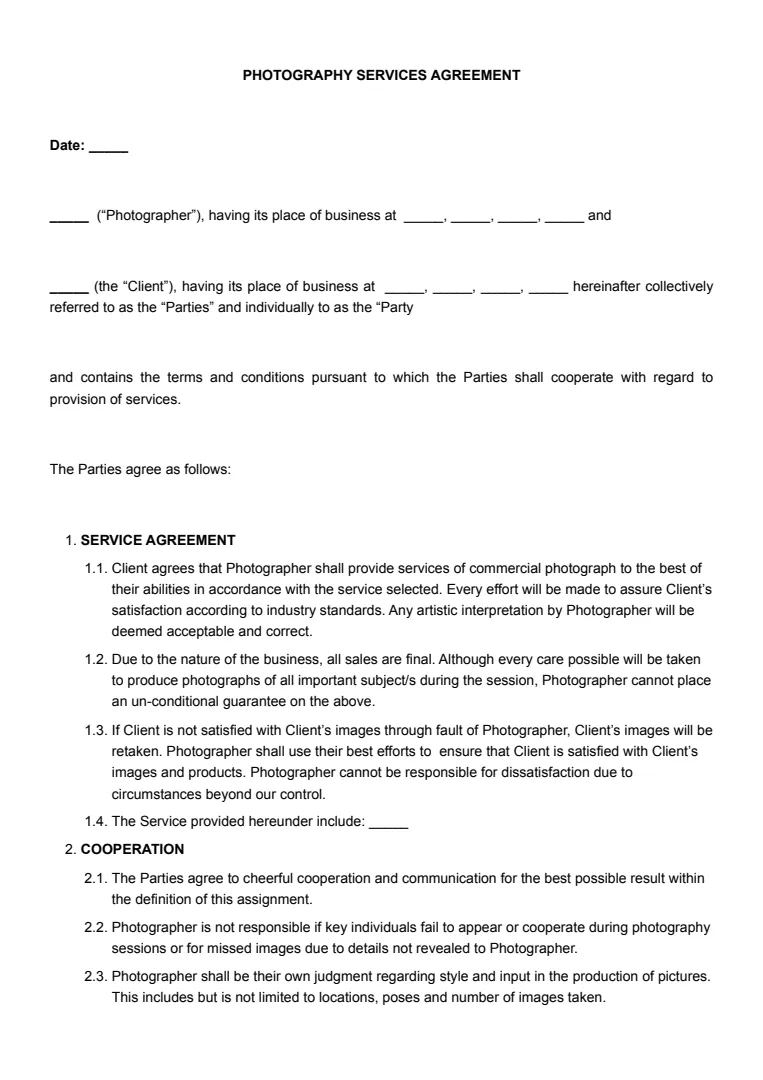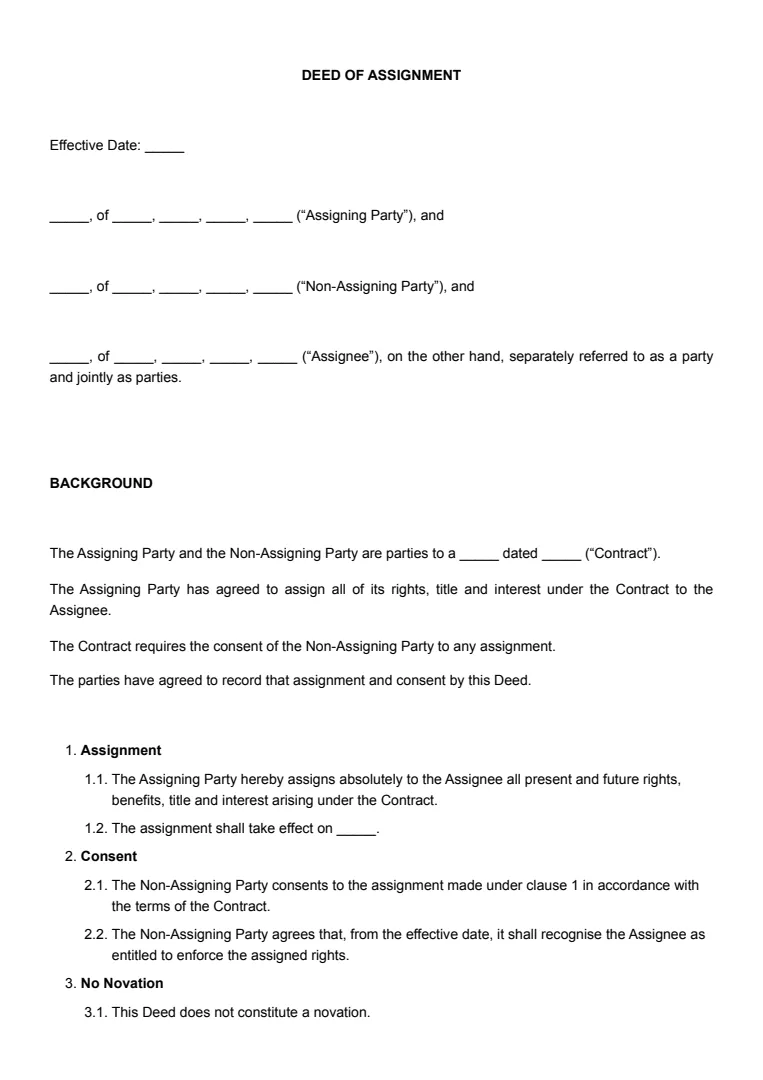What Is an Affiliate Agreement?
An affiliate agreement (sometimes referred to as an affiliate contract, affiliate program agreement, affiliate program contract or affiliate partnership agreement) sets out the terms under which an affiliate markets a company’s products or services and earns commission on resulting sales, leads, or other predefined actions.
It’s more than just a marketing document; it’s a contractual framework that legally protects both parties. It should cover permissible marketing methods, intellectual property usage, payment processes, and compliance with applicable laws. In the UK, the CAP Code governs advertising and promotional practices.
The affiliate agreement ensures accountability, transparency, and clear expectations, distinguishing it from informal arrangements that can leave both sides exposed to legal or financial risk.
When Should You Use an Affiliate Agreement?
Affiliate agreements should be used whenever your business engages third parties to promote products or services for commission. Without a formal contract, expectations can be unclear, and legal exposure increases.
1. Launching an Affiliate Program
When creating a structured affiliate program, a written agreement provides the foundation for operational consistency and legal protection. It ensures that all affiliates operate under uniform terms, which is essential for scaling without chaos.
This includes clearly defining commission structures, outlining acceptable and prohibited promotional channels, and specifying how leads and sales are tracked. It also helps you enforce brand standards so that messaging remains consistent, even across a large, diverse network of affiliates. Without a formal agreement, it becomes difficult to handle disputes over attribution, payment, or compliance breaches.
Expert Tip:
“When designing your commission structure, keep it as simple and transparent as possible. Complicated rules create confusion and disputes, especially as your program scales.”
2. Partnering With Influencers or Content Creators
Influencer and content-driven affiliate partnerships can have high visibility and impact, making legal clarity especially important. Even if the relationship is short-term, the agreement should define exactly how your product will be represented, the platforms to be used, and the timing of posts or campaigns.
This section in affiliate contracts should also detail the affiliate’s responsibility for complying with disclosure rules (such as ASA guidelines) and handling any negative feedback or public relations issues that arise from the campaign. In creative industries, you may also need clauses on content ownership, rights to reuse promotional material, and approval processes before publication.
Expert Tip:
“Always require influencers to use clear, upfront disclosure hashtags like #ad or #sponsored in visible locations. Hidden or vague disclosures can lead to regulatory penalties for both you and the affiliate.”
3. Working With Affiliate Networks
While affiliate networks offer pre-set terms, relying solely on their agreements can leave gaps that don’t reflect your business’s unique requirements. Your supplemental contract should address brand-specific concerns such as exclusivity, prohibited verticals, and additional quality control steps.
For example, you might prohibit affiliates from promoting competing products within a certain category or require specific tracking pixels for validation. A strong supplemental agreement can also clarify expectations around reporting frequency, data format, and audit rights, enabling you to maintain transparency and monitor performance beyond what the network’s dashboard provides.
4. Expanding Into International Markets
International affiliate arrangements introduce complex legal and financial considerations. In addition to ensuring compliance with local advertising regulations, you must address jurisdictional differences in data protection (such as GDPR in the EU or CCPA in California), taxation, and payment processing.
Currency conversion terms should be clear, including who bears transaction costs and the exchange rates used. You may also need to account for cultural differences in marketing approaches; what’s compliant and effective in one country may be illegal or ineffective in another. Including a governing law clause and specifying the forum for dispute resolution can help prevent costly cross-border legal conflicts.
How to Write an Affiliate Agreement
Writing a solid affiliate contract template requires precision and foresight. Each section should be specific enough to prevent misunderstandings but flexible enough to accommodate business growth.
Here’s a step-by-step guide to writing a solid affiliate agreement.
Step 1: Identify the Parties
Use the full legal names, registered business addresses, and, where applicable, company registration numbers or tax identification numbers for both the business and the affiliate. This level of detail is critical to avoid ambiguity in the event of a dispute.
For example, if your affiliate is operating under a trade name rather than their legal entity name, clarify this in the agreement to ensure enforceability. In some jurisdictions, failing to properly identify the parties can make the contract harder to enforce or limit available legal remedies.
Step 2: Define the Promotional Scope
A well-defined promotional scope ensures affiliates know exactly what they can and cannot do when representing your brand. This should list approved marketing channels (such as email campaigns, social media, pay-per-click advertising, or content marketing) and outline content requirements, like tone, brand colours, or logo placement.
It should also identify prohibited practices, such as deceptive advertising, bidding on your trademarked keywords, or sending unsolicited bulk emails, which can result in brand damage or legal liability. Including examples of acceptable and unacceptable practices makes the scope even clearer and reduces the risk of non-compliance.
Step 3: Set the Commission Structure
The commission structure should go beyond simply stating the rate; it should define what qualifies as a payable action, how conversions are verified, and the process for handling disputes over sales attribution. For instance, if a customer uses multiple affiliate links before purchasing, specify which affiliate gets credit. Clarify whether commissions are calculated on gross or net sales, and whether they exclude shipping, taxes, or refunded transactions.
Include payment timelines, thresholds for payout, and any special incentives for top-performing affiliates. Addressing these details upfront helps avoid payment disputes and keeps your program transparent.
Expert Tip:
“Match your affiliate payout schedule to your return or refund policy period. This avoids paying commissions on sales that are later cancelled or refunded.”
Step 4: Outline Compliance and Legal Obligations
Affiliates must operate within the bounds of applicable advertising laws, consumer protection regulations, and data privacy requirements. This section should include specific references to relevant laws such as the FTC Endorsement Guides in the US, the UK’s CAP Code, and GDPR in the EU. Clearly state that affiliates are responsible for meeting these obligations, including prominently disclosing their affiliate relationship in all promotions.
For affiliates who process or access personal data, outline requirements for secure data handling, storage, and transfer, along with consequences for breaches. This protects both your brand and your customers from legal and reputational harm.
Expert Tip:
“Assign someone on your team to review affiliate marketing laws at least twice a year. Regulations change quickly, especially in areas like data privacy and online advertising disclosures.”
Step 5: Include Termination Clauses
Termination provisions in your affiliate program agreement template should address not just how the contract can end, but also what happens after termination. Define termination triggers, such as breach of contract, non-compliance with brand standards, or failure to meet performance benchmarks. Include required notice periods for voluntary termination and clarify whether pending commissions will be paid if termination occurs before payout dates.
For serious breaches, reserve the right to terminate immediately without notice. Including post-termination obligations, such as removing promotional materials and ceasing use of intellectual property, ensures a clean separation between the parties.
Legally.io’s free affiliate marketing contract template and sample affiliate agreement already include all these clauses, saving you hours of drafting and reducing the risk of missing critical protections.
What Should an Affiliate Agreement Contain?
A comprehensive affiliate program agreement should address:
- Parties’ details – Complete identification for both business and affiliate.
- Program scope – Products or services covered, permitted marketing practices, and prohibited conduct.
- Commission terms – Clear definitions of qualifying actions, payment schedules, refund policies, and tracking processes.
- Compliance rules – Advertising standards, disclosure requirements, and data privacy obligations.
- Intellectual property rights – Rules on brand assets, trademark use, and content ownership.
- Termination & dispute resolution – Conditions for ending the relationship and agreed dispute-handling procedures.
- Governing law – Applicable jurisdiction and venue for disputes.
Including these elements reduces the chance of misunderstandings and strengthens the enforceability of your contract.
Legal Tips for Affiliate Agreements
When creating an affiliate agreement, it’s important to bear the following legal tips in mind:
- Be precise with language – Vague terms can be interpreted against the drafting party in court.
- Regularly review compliance clauses – Advertising laws evolve, and your agreement must reflect current legal requirements.
- Protect your brand assets – Limit logo and trademark usage to prevent misrepresentation.
- Plan for data handling – Affiliates accessing customer information must comply with data protection regulations.
- Include an escalation process for disputes – Mediation before litigation can save costs and preserve relationships.
Key Takeaways
An affiliate agreement is essential for defining the terms, responsibilities, and compliance standards between a business and its affiliates.
A well-drafted contract protects both parties by ensuring clarity on commission structures, promotional guidelines, and legal obligations.
It also safeguards brand integrity and minimises the risk of disputes or regulatory breaches.
By using Legally.io’s well-structured, legally compliant affiliate agreement template for the UK, you can reduce risk and increase clarity in your business dealings.
By creating a detailed, enforceable agreement, your business can build sustainable, trustworthy affiliate partnerships that drive long-term growth.















